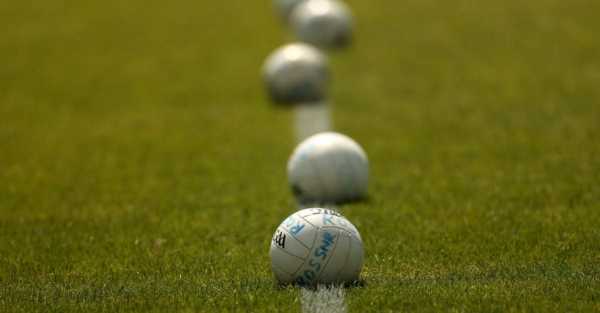
After much debate as to how the game should be changed, the new football rules will be seen in action this weekend in the Football Interprovincial Series.
Following another season of criticism of the game, the Football Review Committee have proposed a number of new rules in the hope the game will be more attacking.
Leinster and Connacht get proceedings under way on Friday at 6pm, followed by Munster v Ulster at 8pm. The winners of those games will compete for the Railway Cup on Saturday evening at 7:30pm, and the two losing provinces will meet in Saturday’s opening game at 5:30pm.
Some of the biggest names in the sport will be in action on Friday and Saturday, including James McCarthy, Stephen Cluxton, Aidan O’Shea, Rían O’Neill and Niall Morgan to trial the new rules.
Ahead of the action, which gets underway in Croke Park on Friday, here are the seven new rules on display this weekend.
Throw in
Only one player from each team will contest throw-ins at the start of each half. The other two midfielders will stand on their defensive side of the halfway line.
Kick outs
The kick-out will be taken from the 20-metre line and must go beyond the 40-metre arc. Players can be positioned behind the 20-metre line when the goalkeeper kicks the ball out. If an opposition player interferes with the goalkeeper or intercepts the ball within the 40-metre arc then the ball will be brought forward 50 metres.
40m Scoring
Scoring a point from outside the 40-metre arc would be worth two points with points scored from within the 40-metre arc worth one point. A goal would be worth four points. Converted 45s will continue to be worth one point.
‘Solo and go’ frees
A player who is fouled has the option of continuing play by taking a ‘solo and go’ rather than pausing to take a free. It doesn’t have to be the player who is fouled that takes the ‘solo and go’. For example, if a player was grounded by a foul, they could hand the ball to their nearest team-mate who could then take the ‘solo and go’.
If the fouled player takes the solo-and-go option, they are allowed four metres (forward or sideways) of advantage in which they cannot be tackled.
Passing to the goalkeeper
A player may only pass the ball to their goalkeeper if both they and the goalkeeper are inside the large rectangle or if the goalkeeper has advanced beyond their own 65-yard line. The goalkeeper can still move up the field to challenge the opposition kick-out or attempt to intercept a pass from the opposition.
Three up and three back
Both teams must have a minimum of three players inside each 65-yard line. So, if you’re the defending team, you must keep three outfield players inside the opposition ’65 and defend with a maximum of 11 players and the goalkeeper.
If a defending player retreats beyond the ’65 to give their team a numerical advantage, then they will concede a free on their own 13-metre line to the opposition.

Sport Quiz: How well do you know the new proposed rules… Read More
If a player carries the ball past their own ’65 and leaves fewer than three team-mates behind, then a free is given to the opposition at the point where they crossed the line.
Advanced mark
A kick-pass from outside the 45-metre line caught cleanly inside the 20-metre line will draw a mark, which the catcher can still call by raising their hand. Alternatively, they can now opt to continue play with the benefit of advantage. If no advantage accrues, it goes back to a free where the ball was caught.
The two games on Friday will be televised live on TG4. On Saturday, the early game will be shown on the RTÉ news channel, and the final will be live on RTÉ 2.
Tickets are €15, giving entry to all four games, and are still available on Ticketmaster.
Sourse: breakingnews.ie